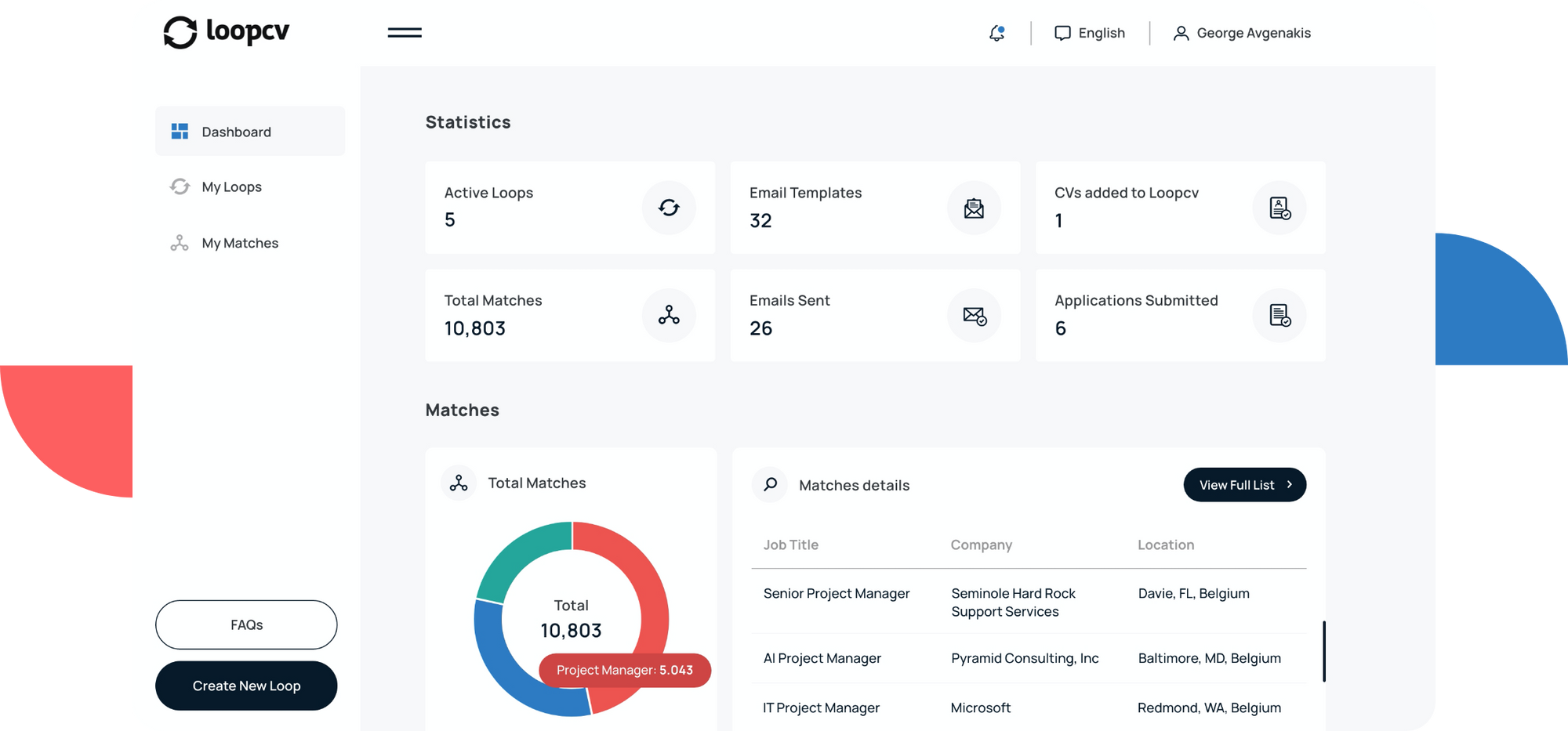How to Ask for Feedback After a Job Rejection - Turn Rejection into Growth
Being rejected after a job interview is always bitter, especially if you are qualified for the position. It's difficult to understand where things went wrong and why they didn't hire you.
Asking for feedback is an excellent way to evaluate your performance, skills, and experience against the standard set by the interviewer or hiring manager. But it can also feel awkward and put a strain on the interview relationship.
So how can you ask for feedback ? Here is the article you were searching for, which will guide you through the best tips.
Table of contents:
- How to prepare for a job rejection
- Write down a few questions before you ask
- Example of an email requesting feedback to a rejection email
- Job rejections are hard, but asking for feedback can make them better
- Examples of answers
- Continue your job search with us
- In conclusion
How to prepare for a job rejection
Consider the following 5 tips.
Before you ask for feedback, it's important to prepare yourself. Mental preparation is the most important part and most of the times people are neglecting the importance of it.
1. Reflect on your emotions
First, take some time to reflect on your emotions and allow yourself to process them. Remember that having these feelings is a natural part of getting a job rejection. If you need extra emotional support, reach out to someone you trust for help in working through them productively.
2. Think about your next steps
After taking time to process your feelings, think about what your next steps will be toward finding a new role. Are there any areas where you feel like your skills could use improvement after getting the interview rejection? Is there anyone in your network that can give you advice on how to put together a stronger resume or cover letter?
Do some research into other job opportunities that pique your interest but may require different skills than what was required of this position.
3. Get ready
Once you have taken care of yourself and are prepared for asking for more information about why you didn't get hired, consider reaching out politely and professionally with an email requesting feedback from the hiring manager or recruiter who interviewed you.
4. Highlight your learnings & build your personal development plan
If they reply to you with the feedback of your rejection, then mark the key points that led them to this decision. Consider feedback from previous rejections, ratings, etc. Do you have a regular theme? What should be the development priority?
Write down any weaknesses or problems you can do and use them as the focus on how to tackle your next preparation.
Turn these requirements into a plan. What can you do to close the performance gap?
Depending on the issue, there may be training or informal coaching that can be done to assist development. Or it could just be a matter of working harder on some of your answers and finding someone to put them into practice.
5. The number one soft skill to improve is resilience
In today's rapidly changing work environment, where technology is accelerating and organizations are changing very agile, developing bold and resilient thinking is essential to long-term success. Consider all setbacks as a challenge to strengthen both your self-image and your ability to regain and deal with disappointment.
Overcoming career path obstacles increases your chances of finding the right job. So stay constructive and do whatever you can to learn from your experience so that you are ready for the next opportunity.
After all, rejection happens to everyone, most importantly you learn from experience.
Write down a few questions before you ask
When asking for feedback, you want to be as specific as possible. It probably doesn't help to say, “Can you tell me why I didn't get the job?”
It helps a lot more to ask something like:
- Did I seem confident in my answers during the interview?
- Did I seem qualified for this position based on the skills listed on my resume?
- Do You Have Any Feedback on My Cover Letter or CV?
- What did you think of the references I provided? Are there any red flags that came up during your conversations with them?
- Did my salary requirements or experience level appear to be too high or low for this role?
Get specific
The best way to get helpful feedback is to ask specific questions. Asking specific questions will make it easier for the hiring manager to pinpoint your strengths and areas for improvement. They’ll be well aware of the process, so they’ll know what influenced their decision.
If you don’t know where to start, here are some examples of great questions:
- What could I have done differently?
- Was there anything wrong with my interview performance?
- Did my resume/application contain any red flag?
- Was there something that made you choose someone else over me?
Be polite and gracious
- Remember that you're asking for feedback, not seeking a second chance:
Your request to connect should be an invitation to talk about what they observed during your interview process. Don't waste the opportunity by asking whether they have another position or if your application is still under consideration.
- Be gracious and express appreciation:
The employer took time out of their day to interview you and follow-up with you after the fact, so it's important to show them gratitude by thanking them for both. This approach will keep the door open in case you want to apply again later on.
- Keep your introduction brief and focused on how it can benefit them:
Letting the interviewer know that this feedback will help them improve their hiring process is a great way of getting an immediate response from them.
Example of an email requesting feedback to a rejection email
- In your first paragraph simply thank their response and state that you understand and respect their decision.
- In another paragraph you can write how you really feel for not getting the job. So, you can write for your disappointment. But, the whole process gave you an advanced experience and learnings.
- In the last paragraph is where you can request for a more detailed feedback in which they will describe to you the reasons you didn't land the job. (Follow all the information we provided to you above).
- Close your email by thanking the hiring responsible and the manager and whoever else was part of your process. If you would like to be informed and noted for new job positions let them know.
Dear [hiring responsible name],
Thank you for letting me know about your decision. I appreciate your time to evaluate me for this position.
I feel disappointed not to work with your [Company Name] team, but it was great to talk to you and learn more about the impact of [Company Name]. If you have time in the near future, I hope I could be informed of how to improve my application and interviewing skills for future opportunities.
If you are willing to give me feedback, I can use it in order to be a better candidate. Thank you for the opportunity. I look forward to the continued success of [Company Name], and I look forward to your continued support. Don't hesitate to contact me by phone or email if another suitable position opens.
Regards [your name]
Job rejections are hard, but asking for feedback can make them better
When you take the time to ask for feedback after a job rejection, it shows that you are genuinely interested in learning and growing as a professional. Not only does this demonstrate that you’re motivated to improve yourself, but it also helps ensure that you don't make the same mistakes in future interviews.
Thats the phrase you should keep in your mind and convince yourself that after is needed after a rejection email. When the company doesn't take the initiative to send you a feedback email then it's your responsibility towards yourself to get an answer and move on. Don't just delete it from your inbox.
In other words, by asking for feedback after a job rejection, you're giving yourself an opportunity to grow as an applicant and increase your chances of success in future job hunts!
But getting rejected from your dream job can be scary and deflating. So what's the best way to ask for feedback? Check the answer below.
Examples of answers
For example, a hiring manager may have preferred another candidate who had more experience or was able to better demonstrate his/her qualifications during the interview process.
Or perhaps your skills and experience were simply less relevant for this particular role relative to other candidates, but could be highly applicable for other opportunities at the company in the future.
It can be hard to handle a rejection, especially if you had your heart set on the role. However, it’s important to keep in mind that there are many reasons why you might not have been selected for the position.
The point is that you shouldn't take a rejection personally—it's usually just a matter of circumstances and best fits.
And even if you're disappointed about not being selected for this job now, it's still possible to create something positive out of a job rejection by asking for feedback on what went well with your application and what areas you could improve upon in your next application (e.g., cover letter/resume writing).
Continue your job search with us
Loopcv is the first matchmaking platform that offers fully automation on the job search and job application.
We can help you apply to hundreds of jobs every day automatically and the best part is that you don't have to spend time doing all the manual steps that you would normally do in order to apply.

In conclusion
It's always a good idea to ask for feedback if you're rejected from a job. Sometimes the company is just not looking for someone with your background, and they will happily give you some advice on what you can do to make yourself more attractive.
Usually people are actually happy to help because they liked your work and want to see you succeed. So don’t be disappointed and keep going until you get what you want.
Good luck!



